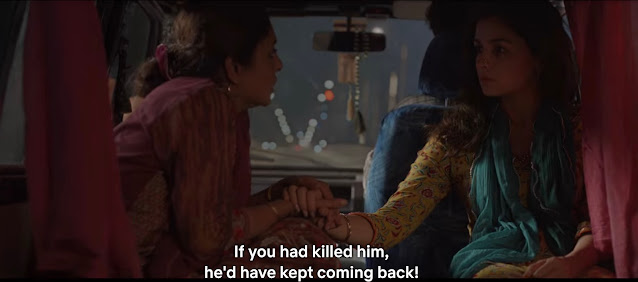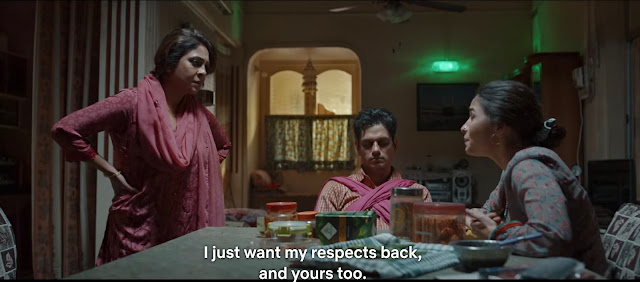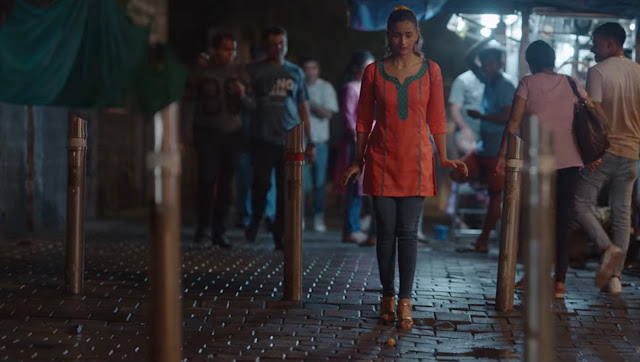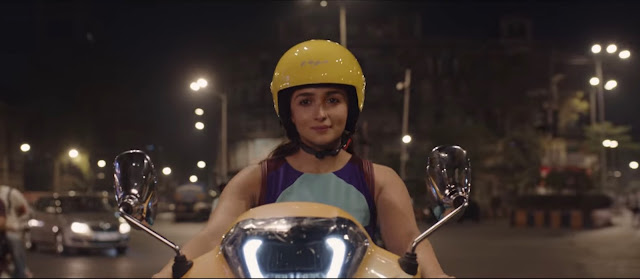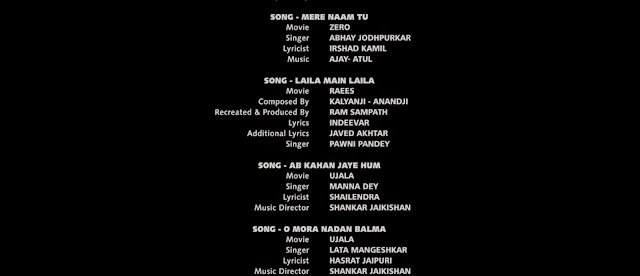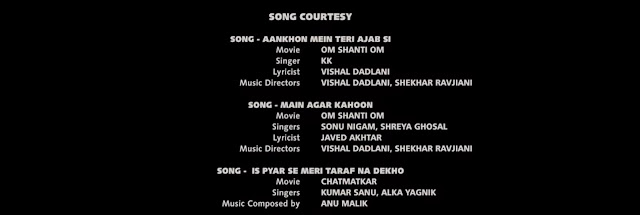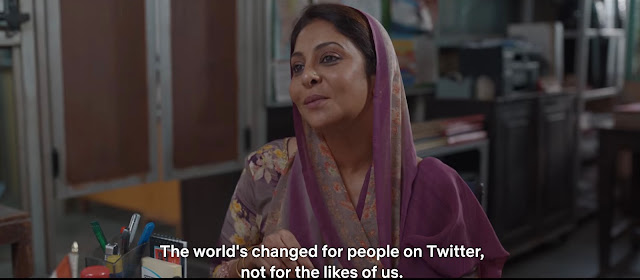
Siddharth Sen's Good Luck Jerry is the Hindi remake of the Tamil film Kolamaavu Kokila. It stars Janhvi Kapoor as the eponymous Jerry. Hailing from Bihar, she lives with her mother Sarbati (Mita Vashisht) and younger sister Cherry (Samta Sudiksha) in a town in Punjab. She gets involved with the drug mafia to fund her mother's treatment for cancer. She tries to get out of the mess after a while; however, things go awry.

Jerry, whose real name is Jaya, shares her name with the lovable mouse from the cat-and-mouse cartoon show Tom and Jerry. Jerry is an intelligent mouse who is able to easily outsmart Tom during their shenanigans. He thinks of innovative ways to escape or dodge attacks in dangerous situations. Jerry from Good Luck Jerry is modeled on similar lines. Early in the film, she compares herself to a mouse who wants to move out of the rathole. Jerry is also able to come out of sticky situations with her intellect even if she does not have the physical strength.
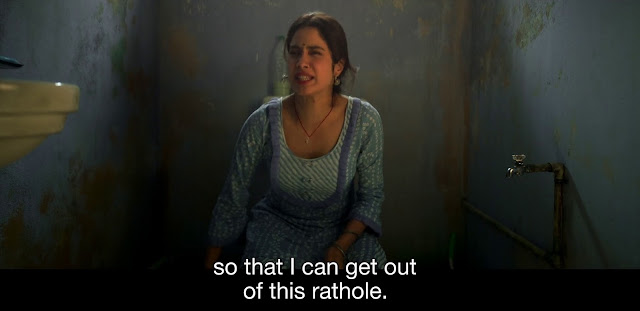
More importantly, Jerry uses her femininity and innocence to her advantage. She almost weaponizes it to her advantage in her life. There is a point in the film when she tells her mother that she is aware that she is a girl and knows when to cry or smile. Timmy (Jaswant Singh Dalal), the drug supplier, uses this for his benefit as the police will not suspect any girl of getting involved in the drug trade. The other men are routinely beaten by the police, but she can get past them quite easily. In the film's final segment, Jerry devises a plan to transport the drugs, and she tells her mother and sister to pretend to be innocent if caught by the police. Perhaps, the most interesting scene related to this aspect is when Timmy understands this trick of hers. He tells her that she is 'bahut chaalaak.' She knows the different situations to address him as Sir, Timmy, or Timmy Ji to her advantage. Like the situation where Jerry makes him kill both his men even if one of them was innocent. When the film starts, it shows Jerry dealing with 'bad luck,' and it feels that she is like Shruti (Katrina Kaif) from Jagga Jasoos, but it is not the case. There have been many films that depict women using their sexuality as a weapon to get things done. Good Luck Jerry depicts a woman using her becharapan to her advantage.


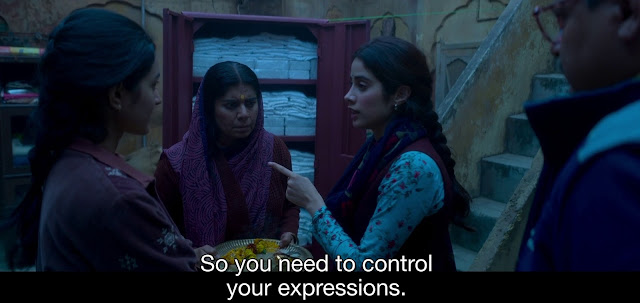

In this sense, Good Luck Jerry has a premise similar to Sujoy Ghosh's Kahaani. The Vidya Balan-starrer film told the story of a pregnant woman who comes to India to find her missing husband. Using her pregnancy as a ruse, she can trick a country's entire security and intelligence establishment to take revenge for her husband's death. A character pointed out that nobody suspects a pregnant woman of anything suspicious. Therefore, she was able to get past easily through many dangerous situations.

There have been comparisons of Good Luck Jerry with Abhishek Chaubey's Udta Punjab because of a Bihari family living in Punjab and getting involved in the drug trade, but I was thinking of Pradeep Sarkar's Laaga Chunri Me Daag (coincidentally, Mita Vashisht had given vocals for the film's title song). The film also told the story of two sisters, their mother, and an absent father. Vibha (Rani Mukerji) moves to Mumbai looking for a job when her family falls upon hard times. Possessing no real skills that could find her employment of any kind, she's left with no option but to become an escort. There was a moralistic and perplexing premise to the story. Jerry in Good Luck Jerry faces a similar dilemma, but the film does not adopt a preachy tone to her choices. She works at a massage parlor even if her mother does not like it. She is fine with her choices and knows how to navigate the circumstances in her life.
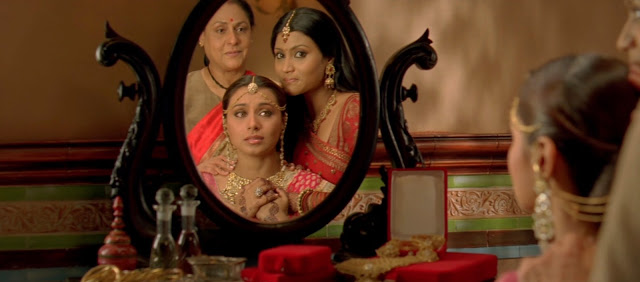
Towards the film's end, Jerry faces another hostile situation where she is again on the verge of being sexually assaulted. The scene happens in a sty, and the camera repeatedly tries to show the pigs. Maybe it was the film's way of representing the men literally as chauvinistic pigs (MCPs). Jerry, her sister, and her mother fight off the man while the other 'heroes' sit outside and helplessly cry, imagining the horror happening inside.
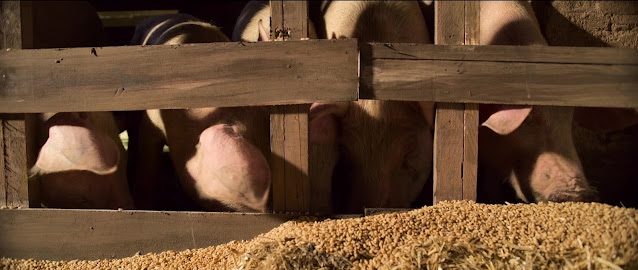

Good Luck Jerry has the typical quirks of characters that we expect in a black comedy film. At one point, a bunch of gangsters capture the policemen, and they say the police ko chaaron taraf se gher liya hai. The film frames are teeming with bright colors, sometimes even distracting the proceedings. It is also, perhaps, for the first time that a film set in Punjab shows fish farming instead of the usual sarson ke khet. The music is quirky as well. There are songs titled Paracetamol and Snake Bite. I wish the film was a little shorter as it loses a bit of pace in the second half, and the climax is stretched.
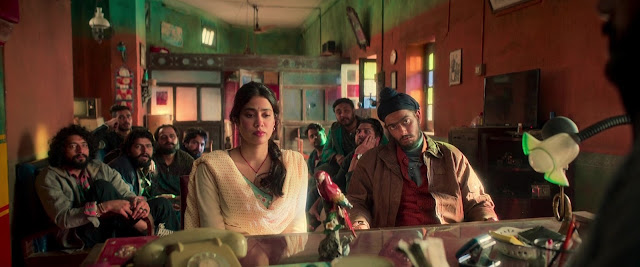
A frame from the film: The colors of the parrot match the ones on the walls.
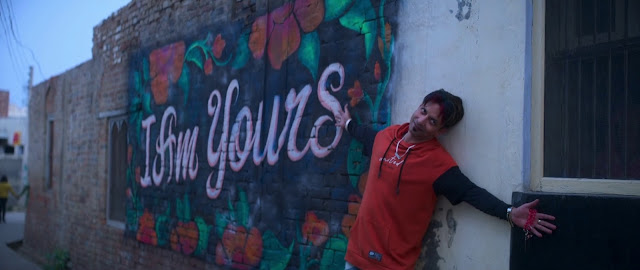
Janhvi Kapoor as Jerry is quite delightful. In many an interview, she has said that she is not as innocent as people think her to be. She brings the same to her advantage in the film. Also, for the first time, I saw a glimpse of Sridevi in her, not acting wise, but in how she looked in the film. Compared to her contemporaries (such as Sara Ali Khan), Janhvi is getting better with every film. The other performances, especially by Mita Vashisht, Deepak Dobriyaal, and Sahil Mehta, are noteworthy.

Good Luck Jerry ends with Jerry and her family coming out unscathed. She ends the film talking about being brave, but at the same time, she acknowledges it was luck that helped her out. Films often depict heroism and bravery but, in life, it is not like that in real life. It is good to remind ourselves of the survivorship bias. As Upamanyu Chatterjee in his magnificent book English, August, "Remember you are not James Bond. You only live once."
Trivia:
1. Books In Movies: An Introduction To Political Theory by O.P. Gauba.


3. Anal Sachdeva (Saurabh Sachdeva) from Manmarziyaan is Malik in Good Luck Jerry. Also, see the fishing posters in the room.

Dialogue of the Day:
"Darr se bas do-teen kadam aage hi ek duniya hai jahaan jaane ke liye na rickshaw lagta hai na auto. Lagta hai bas thora sa himmat."
—Jerry, Good Luck Jerry
—Jerry, Good Luck Jerry









